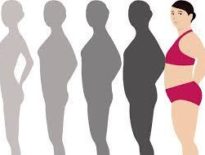Ok, so the holidays are over and it’s time to get down to business for the New Year. For some people it’s a time of optimism and excitement, but for others it can be on ongoing effort in dealing with anxiety/PTSD/OCD and depression.
Whether your affect is dominated by anxiety or depression, it can be paralyzing in your efforts to set, initiate and follow through with goals. Anxiety/PTSD/OCD make -up 60-65 % of psychiatric disorders which can be coupled with depression and insomnia. If you have feelings of nervousness, powerless over fears, a sense of impending doom or danger, an increase in heart rate, hyperventilation, sweating, trembling, weak or tired or trouble concentrating or thinking about anything other than the current worry, then you most likely have an anxiety disorder. PTSD is exemplified by avoidance behavior, difficulty with maintaining close relationships, feeling emotionally numb, hopelessness about the future, lack of positive emotions and memory issues especially regarding the traumatic event. Depression affects women more than men with onset more around middle age, 55-60 years old. There are feelings of sadness, apathy, loss of self-esteem, anxiety, agitation, insomnia, fatigue, decreased libido, thoughts of death and guilt. These feelings are so intense they interfere with functioning and/or decrease interest or pleasure in activities. It usually, but not always, follows a recent loss or event, but is out of proportion to that event and lasts beyond the appropriate length of time. One of the most common sequelae is insomnia. This can lead to the brain’s inability to heal itself and the brain stem cells no longer regenerate. There will be chronic disability the longer it persists.
Addictive behavior, whether with food, drugs or smoking can also play a role in self medicating only to create a whole subset of issues which then have to be treated. Breaking the vicious cycle is the one of the treatment goals.
Conventional treatment would center on pharmaceutical treatment which may bring with it undesirable side effects and feeling numbed out. Though they may have their place in a therapeutic model, there are other actions that can be taken simultaneously or even as an alternative. Neuropuncture, which is a sub-specialty in Traditional Chinese Medicine, can successfully treat patients with amazing results. It is a unique acupuncture system that incorporates the research of neurophysiological mechanisms of acupuncture, combining the research of electrical acupuncture’s effect on specific neural receptors, and the holistic TCM model. The treatment protocols are evidenced based and reproducible. Combining this technique, with herbal/homeopathic remedies, nutritional counseling, psychotherapy, genetic testing and neurotransmitter /hormone testing can increase the efficacy of any one modality. A commitment of time and patience is necessary to allow these treatments to be successful. Changes in lifestyle, food choices, exercise and a spiritual practice are integral to feeling better. Establishing a practice to pray, meditate, learn a martial art , do volunteer work, laugh more, attend a support group, receive acupuncture or go ballroom dancing can enhance the healing process to return to a positive and vibrant being. Practicing gratitude by starting your day writing down three things you are grateful for the duration for one year can change your brain patterns from a negative to positive outlook on life.

